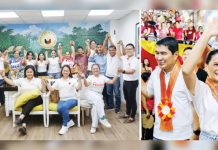
EDUCATION is key to shifting voter behavior. A 2019 Philippine Institute for Development Studies report found that higher education levels correlated with issue-based voting rather than personality-based choices. However, informed voting is not exclusive to the educated elite. The real challenge is making political discussions accessible and engaging for all. Debates should focus on substance rather than theatrics, and voter education must extend to the grassroots level. The government and civic organizations must invest in sustained electoral education — not just during campaign season but as a long-term effort.
Young voters are crucial in driving this change. In 2022, more young Filipinos voted, with Gen Z and Millennials shaping the electorate. But turning online activism into real action is still a challenge. Initiatives like “Vote Pilipinas” and “Youth Vote PH” are promising, but they must be institutionalized to maintain political engagement beyond election cycles.
The concept of discernment, often emphasized in leadership development, offers a valuable approach to voting. It involves careful reflection, questioning motivations, and making informed choices rather than reacting impulsively. Applied to elections means looking past campaign gimmicks, scrutinizing candidates’ records, and thinking about long-term national impact. Discernment leads to a more engaged and thoughtful electorate that is less vulnerable to manipulation and more invested in real change.
Beyond individual responsibility, systemic reforms are necessary. Fair elections need stricter campaign finance rules, limits on dynasties, and more transparency. But the Anti-Political Dynasty Bill remains stuck — blocked by politicians protecting their own interests. Without sustained public pressure, these reforms will remain just ideas rather than realities.
Encouraging Pinoys to vote wisely is more than just a slogan — it requires dismantling structures that foster dependency, misinformation, and political apathy. The shift from personality-driven politics to issue-based decision-making demands collective effort from the media, educators, civil society, and voters themselves. Change will not happen overnight, but every informed vote brings the nation closer to a more accountable and effective democracy.
The challenge remains as the 2025 midterm elections approach: how do we turn passive voters into engaged citizens? The answer lies in education, accountability, and a cultural shift toward valuing governance over grandstanding. Pinoys are not inherently uninformed or easily swayed. They can rise above patronage, propaganda, and emotional voting, given the right tools and opportunities. However, the responsibility does not rest on one sector alone — it is a shared duty among all who believe in a better future./PN







